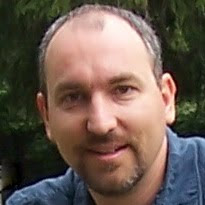
I watched a documentary called Blind Spot, which is an interview with Traudl Junge, personal secretary to Adolph Hitler. She worked for him for a few years during the war, right up until the Russians captured Berlin. In fact, Hitler dictated his last will to her in the bunker. She published her memoirs, and died in 2002.
After the war, Traudl was shocked to discover all of the atrocities committed by Hitler and the Nazis. She had always viewed Hitler as a kind, fatherly figure incapable of doing harm. In the decades following the war, she did much soul-searching to come to grips with how she had been so effectively blinded and deceived about the evil that had taken place all around her.
The interview begins with her discussing how the Nazi system dominated all of society.
[interviewer] People's consciences too?
Yes. You see, that's an area where Hitler did a huge amount of harm. He actually tried to manipulate the consciences of the German people. He convinced them they had a task to do, they had to exterminate the Jews, because the Jews caused all our problems. It wasn't Hitler's own idea, it had been put forward much earlier. That they had to make a sacrifice. And I can remember a writer, she interviewed a soldier who had been stationed in a concentration camp. He was a guard, and she asked him: "Didn't you feel any pity at all for the people you treated so badly there?" And he replied, "Yes, I certainly did feel pity for them, but I had to overcome it. That was a sacrifice I had to make for the greater cause."
And that's what happened to conscience.
After all, Hitler always used to say: "You don't have to worry, any of you, you just have to do whatever I say, and I'll take responsibility." As if anyone can take charge of another person's conscience. I do think you can make someone's conscience more sensitive or desensitize it, or manipulate it.
 |
